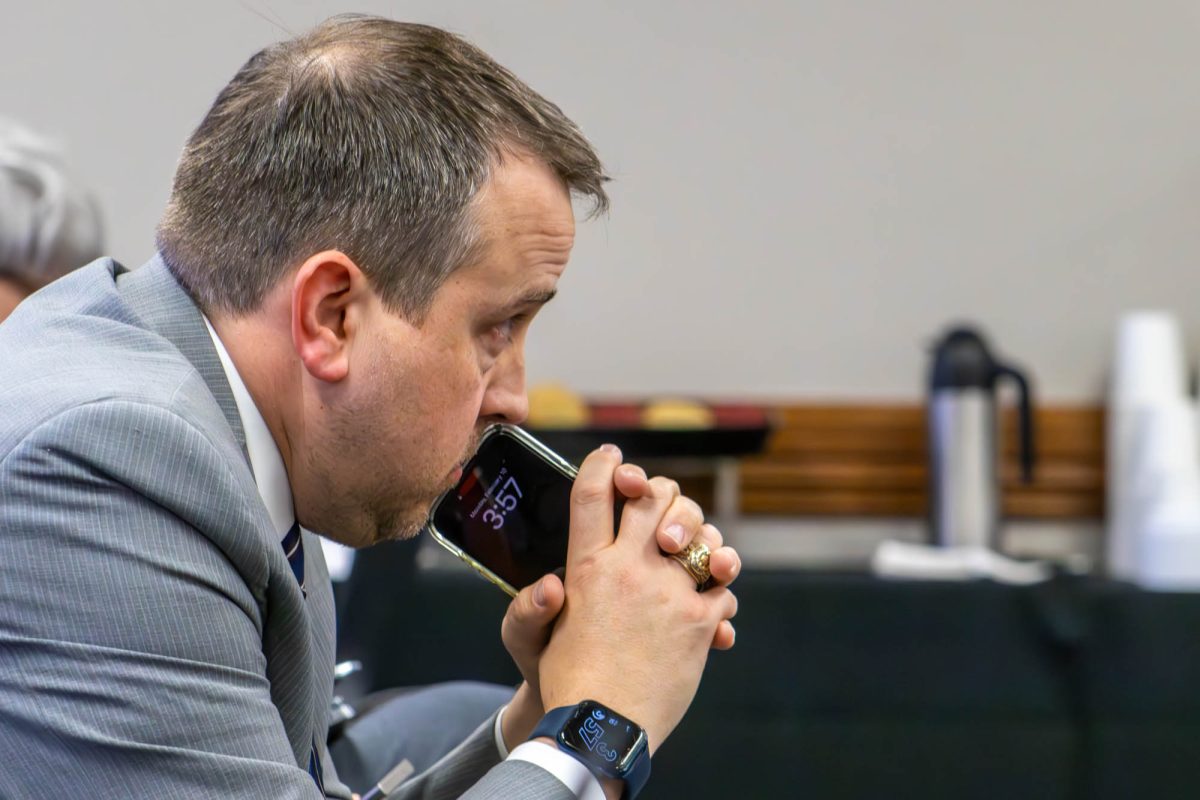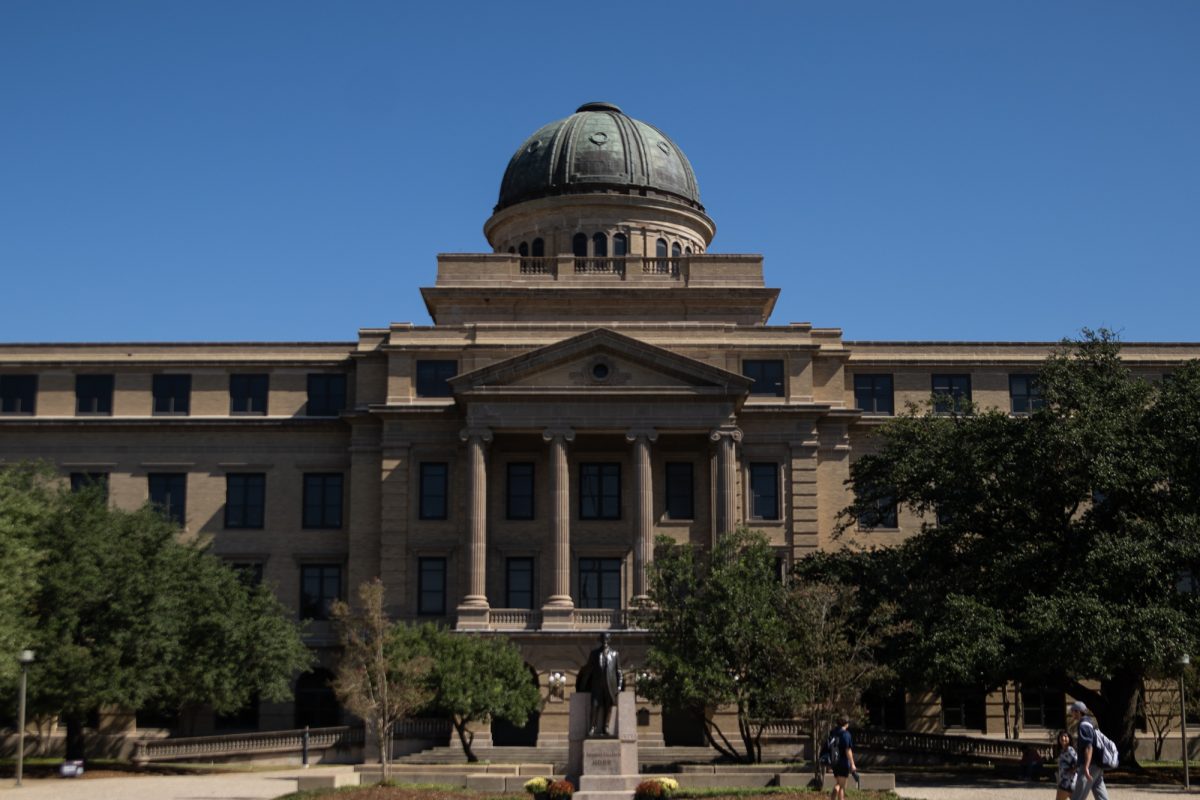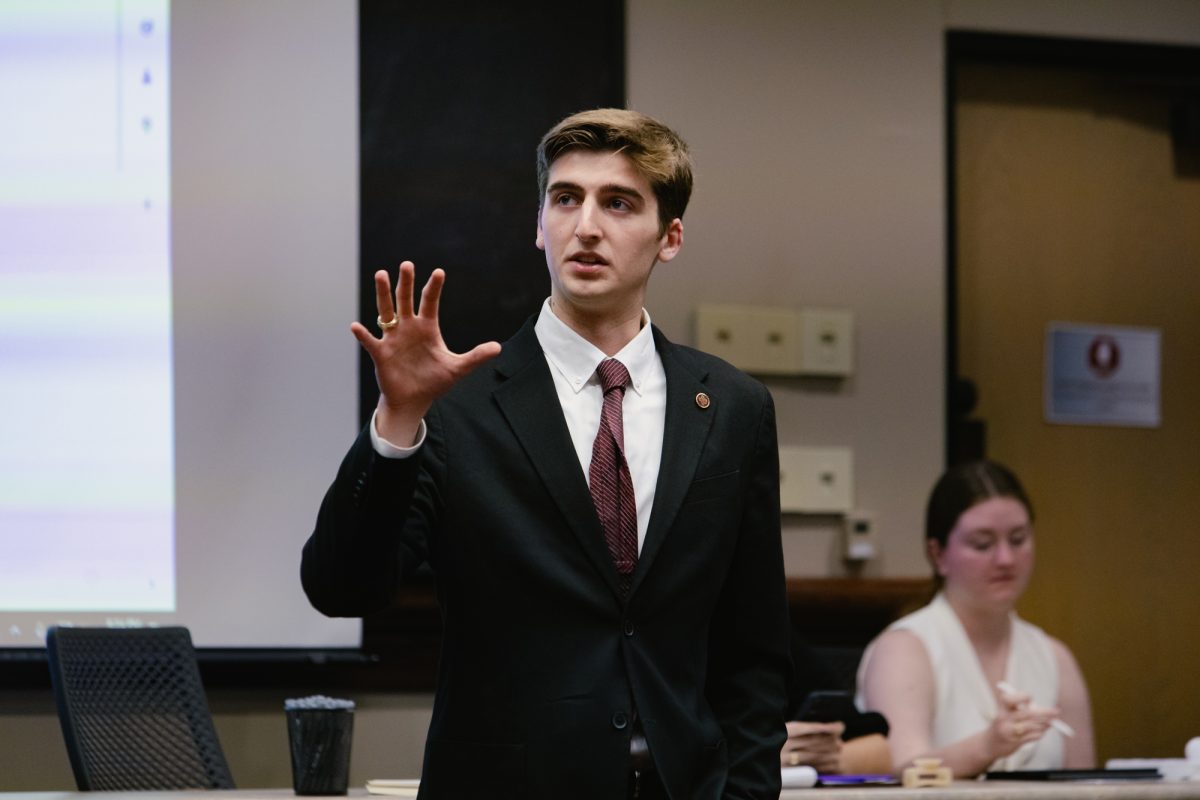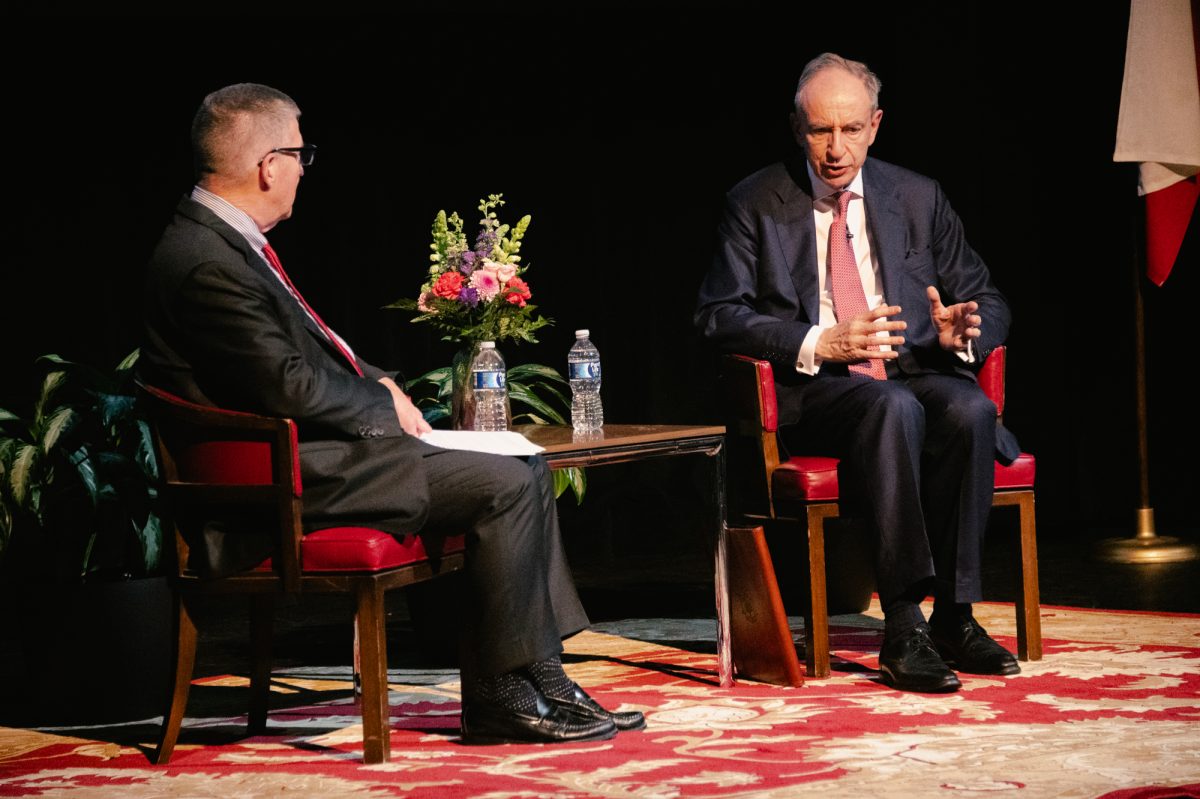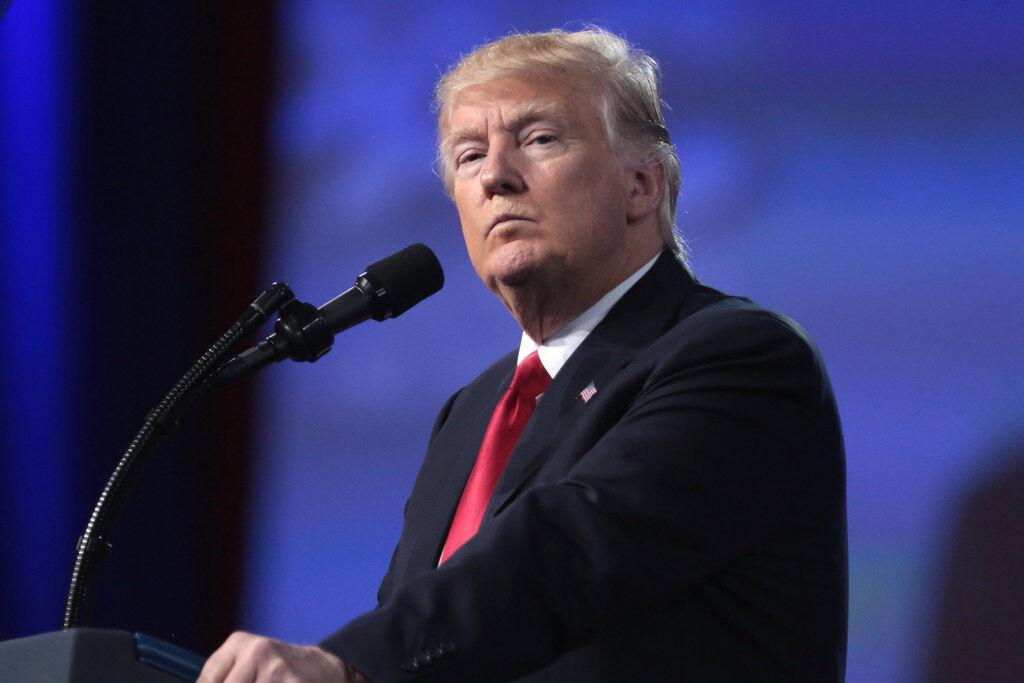The Texas A&M Faculty Senate met on Monday to discuss the launch of new faculty and citizenship initiatives, DEI legislation, research funding and ICE protocol.
Joe Pettibon II, vice president for planning, assessment and strategy, began the meeting by announcing an employee engagement survey ran by consulting firm Korn Ferry designed to gauge faculty satisfaction and identify areas for improvement. The responses will help create targeted action plans in areas identified as opportunities for growth.
“I have a feeling an awful lot of people are highly suspicious of this if they are asked to put in any identifiable information,” professor Dale Rice said. “I’m thinking a lot of people I know in the current political climate are probably not even going to be honest if they do fill it out.”
“Timing is everything,” Pettibon said. “The climate, the way that it is, is going to create some hesitation for some individuals to complete it …. We’ve tried to take some steps by allowing Korn Ferry to keep the data instead of having it sent to us on an individual level.”
Professor Catharina Laporte asked if Korn Ferry is subject to freedom of information act requests. Pettibon replied that he was uncertain.
Brigadier General (Ret.) Kim Field, director of strategic initiatives, then presented details about a new initiative designed to bolster patriotism and civic responsibility within graduating A&M students. The push includes handing out copies of the Constitution, offering a speaker and debate series and adding a course designed to give students a core credit for exhibiting civic values and understanding.
A possible review of POLS 206 and POLS 207 curriculum was also mentioned. Field assured senators that the initiative is non-partisan.
The plan consists of four main goals: instilling Aggie Core Values, teaching constitution-based civics, navigating differences in policy and media literacy and encouraging civic engagement.
Senators quickly raised concerns with the possibly contradictory nature of the initiative and current DEI legislation.
“The idea sounds great, my concern is teaching that without diversity and inclusion,” professor Leonard Bright said. “Is this just a play on words you are doing, or are you committed to teaching students what really needs to be taught … America is diverse, so how do you avoid that conversation in a topic like this?”
Field noted that educators are allowed to have classroom conversations regarding the topics, even if they are no longer permitted to use DEI policies.
“I don’t think it would be avoided,” Field said. “You all own the expertise in what actually conveys this idea of free competition of ideas, but all I can say is that the initiative is absolutely committed to that.”
Executive Vice President and Provost Alan Sams was called upon to speak about the recent federal changes to NIH and research funding.
“There’s a lot swirling around, and one constant is that it’s continuing to change … We are working quite feverishly to keep up with it, to understand it, to know what the impact is,” Sams said.
Ren Mu shared her experience involving other forms of governmental oversight blocking academic research. Executive order GA-48, issued by Gov. Greg Abbott late last year, is designed to protect the national security interests of the state of Texas by instating a variety of precautionary measures before engaging with countries the state deems foreign adversaries. North Korea, China, Russia, Iran, Cuba and President of Venezuela Nicolás Maduro are listed.
“November 26, days after GA-48 was issued, three research collaborations that I had with Chinese colleagues were disapproved,” Mu said. “They cited a single reason: CCP and Chinese state affiliation …. These studies have no connection to sensitive technologies or critical infrastructure. This makes me deeply concerned that GA-48 could be implemented too broadly, potentially stopping research collaborations with China.”
Fundamental research, which is typically open-access within a field of study, is exempt from such export controls. However, other members of the senate also reported having their research collaborations denied, despite being based on public data.
“We don’t have the final process for the implementation of [GA-48]” Sams said. “It’s being developed, and we will let you know as soon as that’s ready.”
Senators also raised concerns about the recent university-wide email sent out by Chief Operating Officer and Senior Vice President Peter Lange reiterating that ICE agents are allowed under federal law to enter campus. Several faculty senators were anxious the immigration policy will increase the number of law enforcement on campus.
“Just to have someone randomly show up and stick a warrant in their face is highly, highly unlikely,” Lange said. “My current interpretation of what’s happening around the country is that there are known subjects on lists that have worked through the process of warrants … some sort of random question for information is highly unlikely.”
When asked about how faculty should interact with ICE agents, Lange said they should refrain from having direct or combative interactions with federal agents. He also raised awareness on the possibility of impersonators and said faculty should allow other law enforcement officials to verify the identity and warrants of ICE agents.
“Call UPD,” Lange said. “Let them sort that information out for you.”




